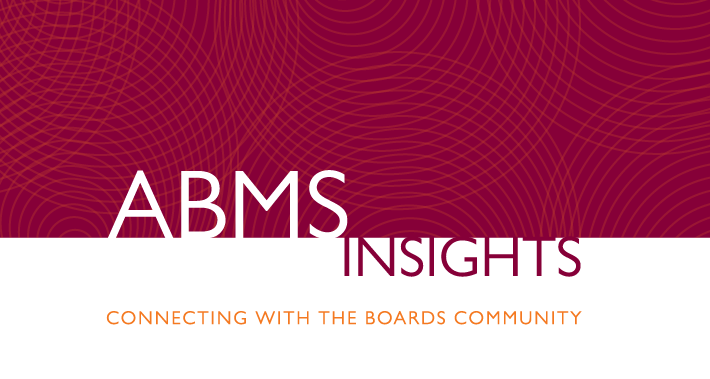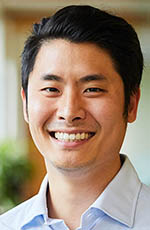
What better way to affect change in diagnostic excellence than to enlist early-career researchers?

“We want to develop a pipeline of junior investigators who are interested in and committed to advancing diagnostic excellence,” said Daniel Yang, MD, Program Director of Diagnostic Excellence for the Gordon and Betty Moore Foundation. That is why the Moore Foundation has sponsored the American Board of Medical Specialties Visiting Scholars Program (ABMS Visiting Scholars Program™) since 2017.
The concept of diagnostic excellence refers to the six dimensions of care – safe, timely, cost efficient, effective, equitable, and patient centered – described in the 2001 Institute of Medicine (IOM) report entitled Crossing the Quality Chasm: A New Health System for the 21st Century. Achieving excellence in diagnosis goes beyond avoiding medical errors, which has been the focus of the field up until now, by including consideration of these other dimensions, Dr. Yang explained. Designing an optimal diagnostic process will require a careful balancing among the competing demands.
Diagnostic errors are the most common cause of medical errors reported by patients, accounting for nearly 60 percent of all errors and an estimated 40,000 to 80,000 deaths per year, according to the Moore Foundation. They also are the number one cause of medical malpractice lawsuits that result, on average, in the highest payouts, Dr. Yang said. “And yet, improving diagnostic performance is often an afterthought in the health care quality and safety domain,” he added.
The lack of attention, funding, and innovation to address diagnostic excellence prompted the Moore Foundation to launch its Diagnostic Excellence Initiative in 2018. Inspired by the IOM’s 2015 report Improving Diagnosis in Health Care that suggested improving diagnosis is a moral, professional, and public health imperative, the Moore Foundation has committed nearly $100 million to improve diagnostic outcomes in the United States.
Co-sponsoring 10 ABMS Visiting Scholars, to date, is one way the Moore Foundation is building a pipeline of junior investigators. Many of these scholars’ research projects focus on improving diagnostic skills, reducing diagnostic error, and addressing racial equity. (See ABMS Visiting Scholars Program Advances Career Aspirations by Brian T. Garibaldi, MD, MEHP, one of the first ABMS Visiting Scholars co-sponsored by the Moore Foundation.)
A second part of that strategy is to increase awareness and engagement across health care systems and organized medicine. “Partnering with key organizations, such as ABMS, that play an important role in influencing priorities, education, and competency evaluation across the medical specialties is critical for advancing diagnostic excellence,” Dr. Yang said.
Every specialty engages in the process of making a diagnosis in some form or another, he said. Making a timely and accurate diagnosis is a foundational competency that should be assessed and kept up to date. ABMS Member Boards’ certification programs can play a major role in advancing diagnostic excellence by ensuring that clinicians demonstrate the necessary knowledge and clinical decision-making skills to make an accurate and timely diagnosis, Dr. Yang added.
Creating such partnerships ties into the Moore Foundation’s second strategy, which is to develop and validate clinical quality measures for diagnostic performance. Systematically measuring diagnostic performance in real time is a difficult task because diagnosis cuts across so many specialties and providers, Dr. Yang noted. “It’s unclear if the right unit of analysis is the individual clinician, the team of clinicians, or the entire health system.” The ABMS Visiting Scholars and Member Boards can help advance the science behind measuring diagnostic performance and guiding improvement in it, he said.
The Moore Foundation’s third strategy is to assess the potential for new technologies to improve diagnostic performance. The goal is to minimize barriers for innovation while advocating for the safe and responsible use of these technologies.
“The topic of diagnostic excellence is underappreciated relative to its public impact,” Dr. Yang concluded. With the help of such partners as ABMS, the Moore Foundation hopes to turn that around.
© 2022, American Board of Medical Specialties
-
Read More:
- ABMS Insights |
- Foundation (REF) |
- Visiting Scholars |
